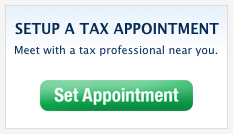Can I Make Payments on The Taxes I Owe?
Generally speaking, the Internal Revenue Service (IRS) actively encourages people to pay their full tax bill by the date it is due. This is the primary reason the IRS actively encourages people to withhold taxes and routinely send in their withholding amounts to the IRS. For the record, getting an extension for your filing date does not extend your due date if you owe money, so additional penalties and interest will be assessed to your liability whether or not you file for, and receive, an extension for filing your annual return. Despite this, the IRS does offer two options for taxpayers to establish payment plans or installment agreements to pay their tax liability over a period of time. These options still involve additional penalties and interest, but offer a viable option to people simply unable to pay their tax bill by the due date.
For taxpayers that owe $25,000 or less (a total combining all taxes, penalties, and interest into one number), the IRS offers the Online Payment Agreement (OPA) program. In order to qualify for an OPA, the applicant has to apply online via the IRS website – www.irs.gov – or can call the IRS toll-free telephone line or mail in a Form 9465 to their tax processing center (as listed on the bill). All that is needed to file for an OPA is a valid Social Security Number (SSN) and an IRS issued Personal Identification Number (PIN); though the IRS may request additional documentation regarding the your income or general financial situation.
Taxpayers owing more than $25,000 in combined taxes, penalties and interest can not apply for an OPA, but may still qualify for an installment plan. In order to apply, you will be required to fill out both Form 9465 (applying for an installment plan) and Form 433F (which is a collection information statement). Once these forms are filled out, they have to be mailed to the tax processing center where your taxes should be mailed. Supplementary documentation may also be requested by the IRS prior to approval.
As mentioned before, the IRS does not encourage people to set up a payment plan, so they charge a number of fees and assess interest. There is a direct initial fee of $105.00, though this can be reduced to $52.00 if you opt to set up a direct debit payment option from your bank account. Further, interest is charged on all unpaid tax amounts until the bill is paid in full. If you can show reasonable cause for not paying your tax bill in full by its due date (for 2009 taxes, April 15, 2010) you can avoid a late payment penalty, but if not this penalty will be regularly assessed until it equals twenty-five percent of the amount originally owed. Further, the late penalty applied to the interest owed will continue to accrue until the entire tax bill is paid. Due to all of these penalties, it is often more cost efficient to take out a personal loan in order to pay off the tax liability altogether, as the interest on such a loan will almost inevitably be less than the amounts charged by the IRS. In fact, the IRS specifically recommends this option before setting up a payment plan.
Have a tax question? Ask one of our tax professionals.



